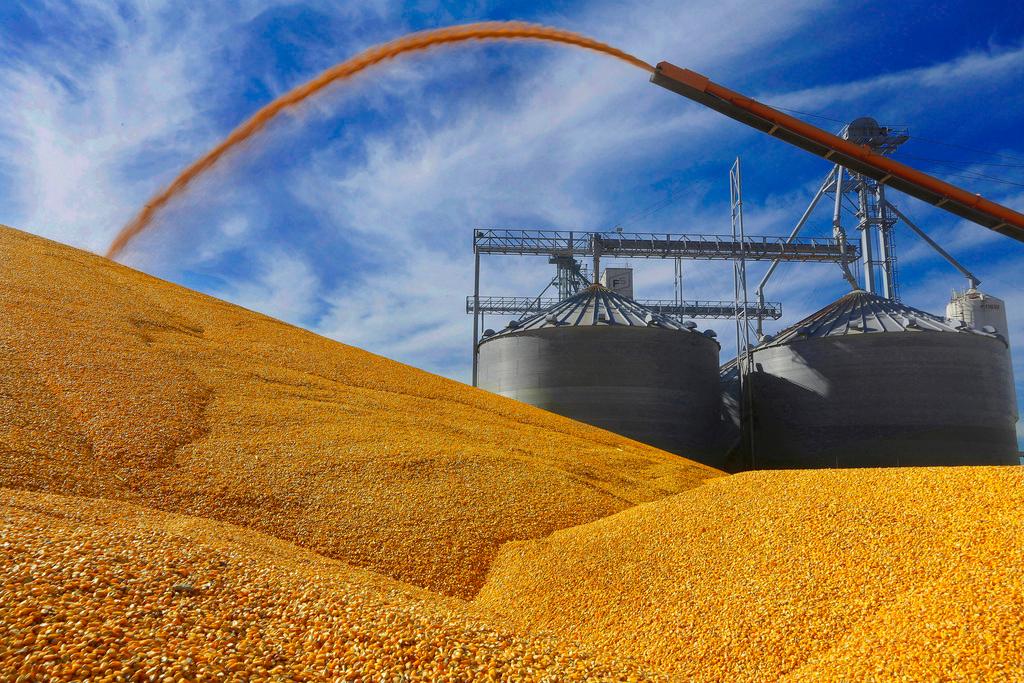Game over for food speculation initiative

The initiative “No speculation on foodstuffs” proposed by the Young Socialists has been rejected by almost 60% of Swiss voters.
59.9% of Swiss voters said no to the initiative, which was defeated in all cantons barring Jura and Basel City.
The backers of the initiative wanted to curb dramatic price rises on foodstuffs by restricting financial institutions from speculating on food and agricultural commodities. Opponents argued that it is unrealistic and if passed, would be damaging to Switzerland, which has become a European hub for several global commodity firms.
Reacting to the results, Economics Minister Johann Schneider-Ammann stressed that the Swiss economy would have been weakened if the Young Socialists initiative was accepted. He added that development aid was the right means to fight poverty and hunger.
“What we do is not nothing”, he said in reference to Swiss efforts in this direction.
Results vote February 28, 2016
Hardline proposal deportation of criminal foreigners: 41.1% Yes 58.9% No
Second Gotthard road tunnel: 57% Yes 43% No
Tax breaks for married couples: 49.2% Yes 50.8% No
Ban on food speculation: 40.1% Yes 59.9% No
“We now hold our opponents to their word,” said Fabian Molina, president of the Young Socialists, in reaction to the rejection of his party’s initiative. He called for the cabinet to hold its side of the bargain and not reduce development aid, a measure it had argued was more important than food speculation when it came to addressing famines. He also called on the government to limit the number of trades a single person can hold on a food commodity under the new law on financial markets.
Despite the loss, gaining the votes of 40% of the electorate was seen as a respectable result for what was viewed as very leftist initiative, especially in the midst of a rough patch for the Swiss economy.
“This shows that the fight against world hunger and support for pro-farmer policies enjoys great backing in Switzerland,” said a statement made by an alliance of 40 groups behind the initiative.
Opponents of the initiative were gracious in victory, claiming that while the principle was worthy the manner of going about achieving it wasn’t practical.
“One doesn’t politicise good intentions,” said parliamentarian Philippe Nantermod, whose Radicals party opposed the initiative. “It is the victory of pragmatism against ideology.”
No to uncertainty
Even if voters were sympathetic to the argument that food should not be traded like any other commodity, only a minority were able to overcome their reservations against the impact a “yes” vote would have on jobs and the Swiss economy. The battering received by Swiss-based firms due to the strong franc has been widely publicised in the media over the past year, and perhaps contributed to the reluctance to rock the Swiss business boat.
“We risked the departure of certain companies if we want to make this type of trading impossible,” said Dominique de Buman of the centrist Christian Democratic Party, which opposed the initiative. “There was fear of losing an entire financial sector”.
Lack of clarity on the application of the initiative also did not help in dispelling uncertainty. Opponents, especially the Swiss government, repeatedly referred to the application as a bureaucratic nightmare. Others raised concerns that it would be very difficult for authorities to distinguish between speculation and price guarantees for foodstuffs.
“Today’s decision clearly reinforces Switzerland’s position as a trading hub,” said a statement from the Swiss Business Federation economiesuisse.
Morals vs money
The outcome will be a relief of the numerous Swiss-based international commodity firms that are mainly based out of the Lake Geneva area. For example, the region plays host to American firms ADM, Bunge, Cargill and French company Louis Dreyfus – known collectively as the ABCD of commodity trading – that together account for around 90% of the global trade in cereals.
The campaign posters of the two opposing camps exemplified their strategies to win over voters. The ‘Yes’ campaign backed by the leftist Socialists and Greens painted commodity traders as shadowy figures intent on making profits even at the cost of food security in poor countries. They also highlighted that the speculators were making several times more money on the trade in agriculture commodities than farmers themselves.
Adding their voices to the political left are NGOs such as Terre des hommes and Swissaid, Christian groups and charities like Bread for All and Salvation Army, as well as sustainable agriculture groups and labels like Biosuisse and Uniterre.
The initiative’s supporters counted on four main arguments to convince voters: food speculation leads to famines, food should be better regulated than other financial products, speculation doesn’t help stabilise food prices, and many financial institutions have stopped investing in it.
The ‘No’ camp, which includes the centrist Christian Democratic Party and conservative right Swiss People’s Party focused on portraying a yes vote as economic hara kiri for Switzerland. The potential exodus of Swiss-based commodity trading multinationals and resulting loss of thousands of jobs were used to package the debate as an economic issue instead of a moral one.
Opponents of the initiative also tried to persuade voters by questioning the rationale behind ending food speculation. Three key arguments used include: weather and macroeconomic factors influence food prices more than speculation, speculation helps fix and guarantee prices in the long-term, and a Swiss ban on speculation will have no significant effect on global commodity trade.
Commodity trading firms remained tight-lipped about their views on the upcoming vote. Only the American commodities giant Cargill – the world’s biggest trader of cereals – with an office in Geneva, expressed its reservations publicly. It warned that subjecting only Swiss-based companies to food speculation restrictions sends a bad signal.
Voter turnout was 63%, the highest in more than 20 years. Participation usually hovers around the 40% mark. Heavy last minute campaigning, especially on the issue of deportation of foreign criminals, is believed to have encouraged eligible voters to exercise their right. Cities and towns such as Bern, Biel and Lausanne saw queues of people lining up on Sunday to make their votes count before the polls closed.
The last initiative to see high numbers of citizens casting ballots was the vote on curbing immigration two years ago when turnout was 55.8%.
Just over 17% of 133,500 citizens, including registered Swiss abroad eligible to take part in an ongoing trial, used e-voting, according to the Federal Chancellery.

In compliance with the JTI standards
More: SWI swissinfo.ch certified by the Journalism Trust Initiative




You can find an overview of ongoing debates with our journalists here. Please join us!
If you want to start a conversation about a topic raised in this article or want to report factual errors, email us at english@swissinfo.ch.